Opinion
Tough going
Women politicians find themselves caught between the devil and the deep blue sea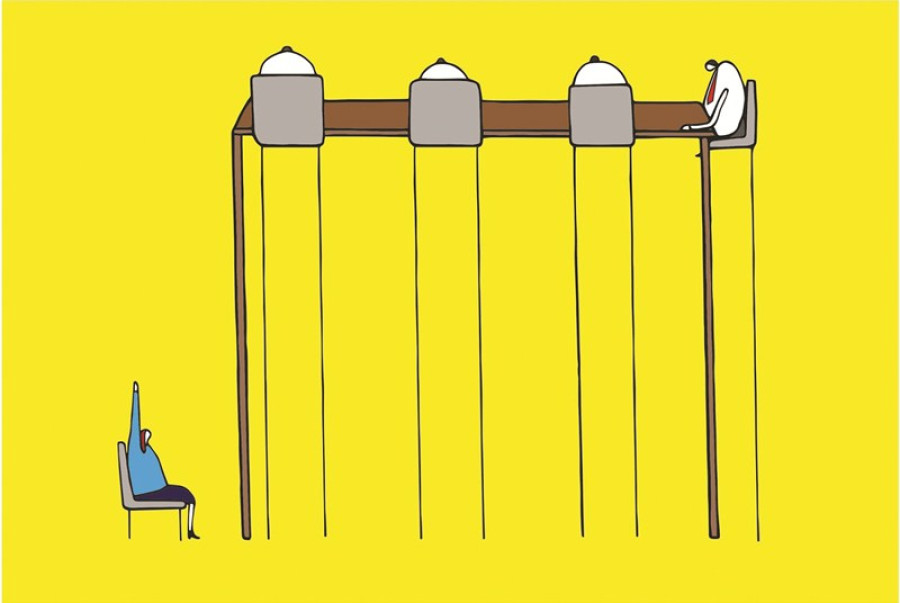
Though the issue of women empowerment in Nepal has boiled down to political empowerment, women politicians are increasingly being caught between the devil and the deep blue sea. If participating in the direct elections is an undesirable option, winning a reserved seat is an equally challenging task. Clearly, the Constituent Assembly (CA) elections in 2013 were a disaster for women politicians. Out of the 667 women contestants, only 10 secured a win. In the 2008 elections, only 30 out of the 369 candidates won.
Still difficult
For a woman politician, participating in the direct elections which is heavily dominated by the three Ms, namely money, muscle and mafia, is like a lightweight boxer challenging a heavyweight champion. Resorting to the 33 percent reserved seats under the proportional representation (PR) system, they are again subservient to the whims of male political actors. In fact, the reservation seats have been reserved for the ‘near and dear ones’ of the political masters. Earlier, I had written that ‘women in politics’ had been transformed into ‘politics in women’. Let us delve a bit more into ‘women in politics’.
First, a little background. On March 16, an interaction programme on meaningful participation of women in politics was organised in Kathmandu by an NGO called Samjhauta Nepal. About two dozen female representatives from varied sectors like politics, media, civil society, student unions and academia participated in the event. After sharing the experiences of some participating representatives, Usha Jha from the NGO gave a brief overview of meaningful participation and Sustainable Development Goal (SDG) 5 on gender equality, and posed two questions to the participants: (1) What are the helping factors for women to get engaged in politics in Nepal? (2) What are the hindering factors? Here are some mind-boggling answers.
As stated before, male dominated politics is no match for women politicians unless one is a dynastic politician. Pampha Bhusal, a former minister and leader of a breakaway faction of the Maoist party, said that if you do not have a minimum of Rs30 million cash, do not even think about contesting the elections, even under the PR system. Since women do not have access to resources, particularly financial, the deformities in our electoral system have taken a toll on women politicians. Neelam Varma, a leader from a Tarai-based political party, said that women were no match for ‘block vote purchases’, that is, there is open buying and selling of block votes during elections in the Tarai.
Character assassination
It is not just getting into politics that is difficult; staying there is equally hard. “The most women are offered is the post of vice-president or treasurer. When one is nominated to the central committee or any other decision-making body, the role of women is expected to be limited to raising women-related issues, nothing more,” said Varma. In order to discourage participation by female politicians, important committee meetings are scheduled for early morning or late night. When they complain, male counterparts accuse them of having double standards regarding gender parity.
Om Devi Malla of the Nepali Congress shared her long experience in Nepal’s cooperative sector. “Men and men alone have dominated the sector for the last 17 years even though 47 percent of the cooperative members are women. No woman has ever been elected to an official position,” she said. The reason is simple: They have never been allowed to get into policy-making positions. When politics itself is regarded as a ‘dirty sector’, it is no wonder that women in politics are labelled as persons with a bad character. One of the participants said, “If you are thinking of a political career, be prepared to remain single.” And remaining single is no less a challenge. Babita Basnet, a senior media person, had a light but equally serious incident to share with the participants. This is a dilemma faced by women politicians that she observed during one of the election campaigns. A woman politician was riding pillion during her election campaigning. In order to avoid being seen with the same motorcycle rider and drawing possible undesirable talk, she chose a different one each time—only to have to confront another allegation that ‘every time she is having a different man’.
Character assassination has been the primary tool used against women candidates. Studies on violence against women in politics in South Asia have revealed it to be much more prevalent within parties in Nepal. Women Members of Parliament nominated under the PR system have to face all kinds of allegations of licit and illicit relationships while their male counterparts face none. Women candidates face challenges ranging from being assigned humiliating election symbols to constituencies where they have no chances of winning. The very first opposition comes from the family, from the home itself. Women cannot match the networks and relationships that male politicians have built by hosting regular and irregular evening cold tea ceremonies, implying wining, dining and pork barrel politics.
Things to ponder
The participants in the interaction programme agreed that the 33 percent reservation they have managed to secure through a series of movements (the Maoist, Madhes, Janajati and Dalit) had led to women occupying two out of five Right Honourable posts. They pondered how the remaining two-thirds of the seats would be secured through active contestation. Some doubted whether the much-talked-about target of achieving a 40-60 percent parity zone by 2030 would ever happen given the capacity level of women politicians or their split along regional, religious, caste and ethnic lines.
The idea of women-only constituencies was floated during the last CA elections, but it fell on the deaf ears of the Khil Raj Regmi administration. The women participants must have pondered: If demography is in our favour (females now outnumber males), why is inclusive democracy working against us? A participant lamented, “A woman can do nothing without her husband’s support.” Even the Maoists who used to boast so much about women making up 40 percent of their PLA fighters have now all fallen into disarray. It sounds like they are back to square one. Coincidentally, UN Women’s Day falls on March 8, and March and April are fertile months for political tensions in Nepal. Hopefully, women politicians are not conspiring to have one in the near future.
Manandhar is a freelance consultant




 8.12°C Kathmandu
8.12°C Kathmandu
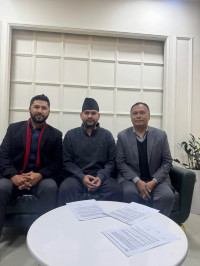
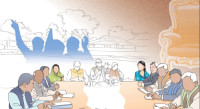


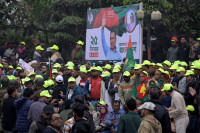

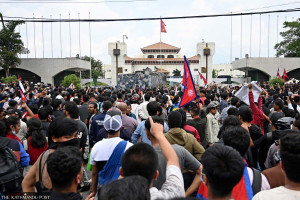


%20(1).jpg&w=300&height=200)

